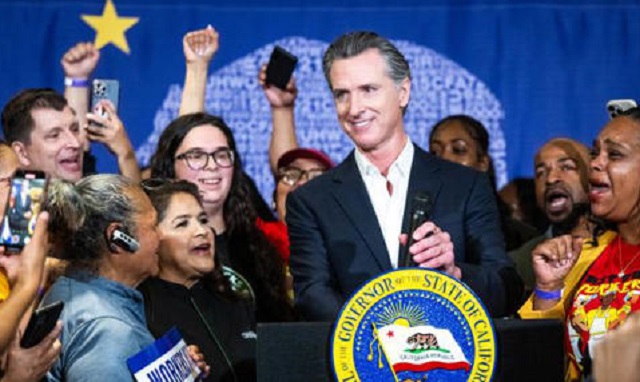
California Fast Food Workers Get $20 Minimum Wage: What Does This Mean for You?
California Fast-Food Workers to Get $20 Minimum Wage, California Governor Gavin Newsom signed a bill into law on September 28, 2023, that wage will increase to $20 per hour. The new law, AB 1228, or the Fast Food Franchisor Responsibility Act, will go into effect on April 1, 2024.
The law also establishes a Fast Food Council, which will have the power to set wages and make recommendations for working conditions for fast-food workers. The council can increase the minimum wage each year through 2029 up to 3.5% or the average change in the Consumer Price Index for urban wage earners, whichever is lower.
The National Owners Association (NOA), a group that represents more than 1,000 McDonald’s franchise owners, has criticized the law, saying that it will introduce costs that “simply cannot be absorbed by the current business model.” The NOA also claims that 95% of the 1,300 McDonald’s restaurants in California are locally owned and operated by small business owners.
However, supporters of the law argue that it is necessary to ensure that fast-food workers are paid a fair wage. They also say that the law will help to reduce poverty and inequality in the state.
The passage of the law in California could have a ripple effect across the country, as other states may look to follow suit. The NOA has expressed concerns about this possibility, saying that it could jeopardize franchisees’ ability to make local business decisions.
Mike Pence BLASTS Biden’s Border Wall Order
What’s in the bill?
AB 1228 applies to fast-food chains with at least 60 locations nationwide, except for those that make and sell their own bread. The bill’s landmark change is a minimum wage hike to $20 per hour, almost $5 higher than the Golden State’s minimum wage of $15.50.
The bill also establishes a Fast Food Council to set wages and make recommendations for working conditions. The council has the power to increase the new minimum wage each year through 2029 up to 3.5% or the average change in the Consumer Price Index for urban wage earners, whichever is lower.
One key part of the bill was removed since its proposal. Previously, AB 1228 would have made fast-food corporations jointly liable if franchisees committed labor violations. However, this provision was removed after negotiations between industry and labor groups.
What now for fast-food workers in California?
Fast-food workers in California will have to wait until April 1, 2024, to see their minimum wage increase to $20 per hour. However, they may receive a small bump in the new year when the state’s minimum wage for all employees increases to $16 per hour on January 1, 2024.
This means that fast-food workers who are currently making less than $16 per hour will receive a raise on January 1, 2024, even though the new $20 per hour minimum wage does not take effect until April 1, 2024.
The passage of the new law is a significant victory for fast-food workers and their advocates. It could also have a ripple effect across the country, as other states may look to follow suit.
Here are some of the potential implications of the new law:
- Fast-food workers will have more money to spend. This could boost the local economy and help to reduce poverty and inequality.
- Fast-food restaurants may have to raise prices. This is because they will need to pay their workers more.
- Some fast-food restaurants may close or reduce their hours of operation. This is because they may not be able to afford to pay their workers more.
- Other states may pass similar laws. This is because the new law in California could create a precedent for other states to follow.
It is important to note that the new law is still in its early stages, and it is too early to say for sure what its full impact will be. However, it is clear that the law is a significant victory for fast-food workers and could have a major impact on the fast-food industry in California and beyond.
